Lindblad Legacy Anchored in Conservation
Swiss-born expedition pioneer Sven-Olof Lindblad and his American wife, Kristin Lindblad, a distinguished photographer, speak to Angela Dansby about the importance of responsible tourism and how travellers can protect and give back to the environment.
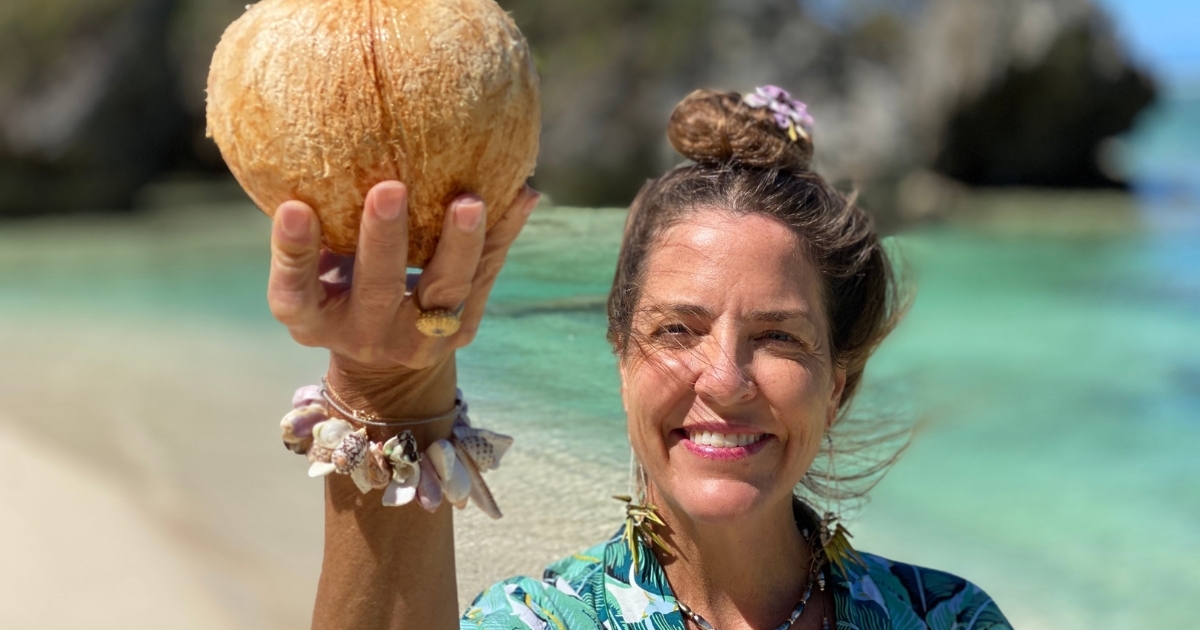
Sven-Olof is the founder, CEO and co-chair of the board of directors of Lindblad Expeditions, which offers exploration trips aboard small ships to lesser known places in an environmentally responsible manner.
The company has a strategic alliance with National Geographic as a fellow pioneer in global exploration to enable travellers to better experience the natural world and capture it via photography. For his numerous contributions to environmental awareness and protection, Sven-Olof is listed on the United Nations Environment Programme’s Global 500 Roll of Honour. His photography has appeared in National Geographic and Smithsonian magazines as well as in his own photo books on Alaska, Baja California and Tanzania’s Serengeti National Park.
With a background in communications, Kristin travels the planet to document and share meaningful stories. Her writing has appeared in publications from Scientific American to Newsweek. She also fundraises via Kristin Lindblad Philanthropy and the Wanderlust Fund, a joint venture with her husband, to support organizations dedicated to cultural and environmental protection, global relief efforts, children and the arts. An avid scuba diver, Kristin created OCEANSCAPES, an artivism platform that features her underwater photography to inspire social action.
Based in Maui and Charleston, S.C., but often travelling the world, the Lindblads are hard to catch but happy to share their experiences and wisdom.
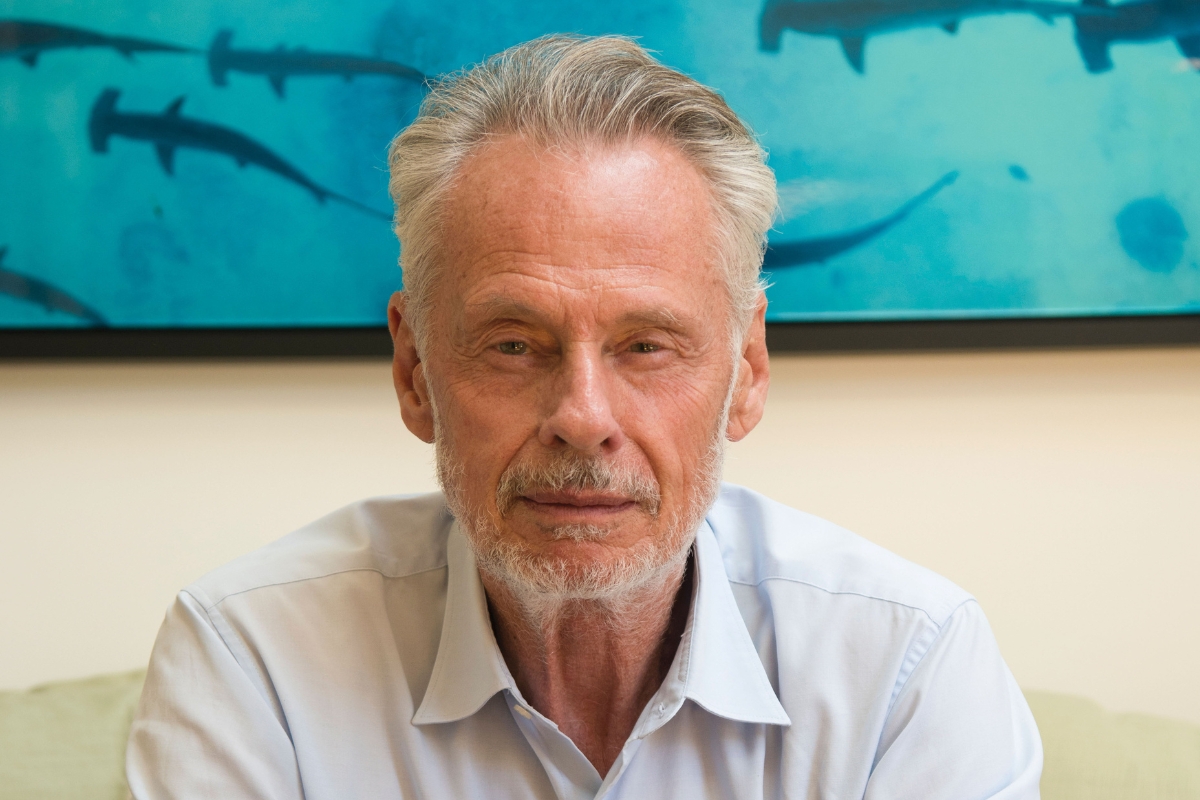
What inspired your respective interests in cultural and environmental protection?
Sven: At the end of the day, we have this planet. We obviously know there are lots of issues, threats and things that we need to take care of if we're going to have a semblance of anything for future generations … As a company, Lindblad Expeditions, we don't view our involvement in nature and environment as philanthropy, we view it really as investment – [not] for capital return [but] in the state of the planet.
Kristin: I've always been drawn to remote cultures [and] people who are so different than me because I grew up mostly surrounded by people who were very similar. So, it was very inspiring for me to actually see these different environments first-hand [and] many different types of people … ways they practice spirituality, honour each other and honour nature. So much of travel is about variety, right? Variety is the spice of life. Travel inspired me to really love and have great reverence for these cultures, and also to understand their challenges, like when you're out in the field and you see rivers full of plastic and places that don't have trash dispersal companies … all of these challenges made me realize there are lots of opportunities to get involved and help keep things on the planet as pristine as possible.
What are you doing to help protect cultures and environments as you're traveling around the world?
Sven: There are a variety of different ways. Obviously, funding is one aspect of it, so we look for and identify, together with colleagues, various projects that we feel are worthy of support. For example, Kristin was in Colombia a while back and she spent some time with an indigenous community called the Kogi … one of the most isolated tribes in the world. There are lots of indigenous people around the world whose health is in jeopardy because of the way they cook and their time is wasted because they gather wood in order to produce charcoal. And the effect on the environment is negative. [So] we decided together to start a project on a pilot basis with The Amazon Conservation Team [with] some innovative cook stoves [that] will improve health, limit destruction of the forest and allow the people, mainly women, a lot more time to do other things rather than collecting wood.
Also, we're involved with supporting certain foundations and organizations with rather large commitments, [sometimes] in matching programs … We're very active in being a platform for scientists around the world to use our ships in order to do various kinds of work. For example, in Antarctica we've had a team for a decade or more working on killer whales. We set up nine cameras in Antarctica [that] do time-lapse photography about changes in glaciers and how they recede [as] a valuable data point for understanding the effects of climate change.
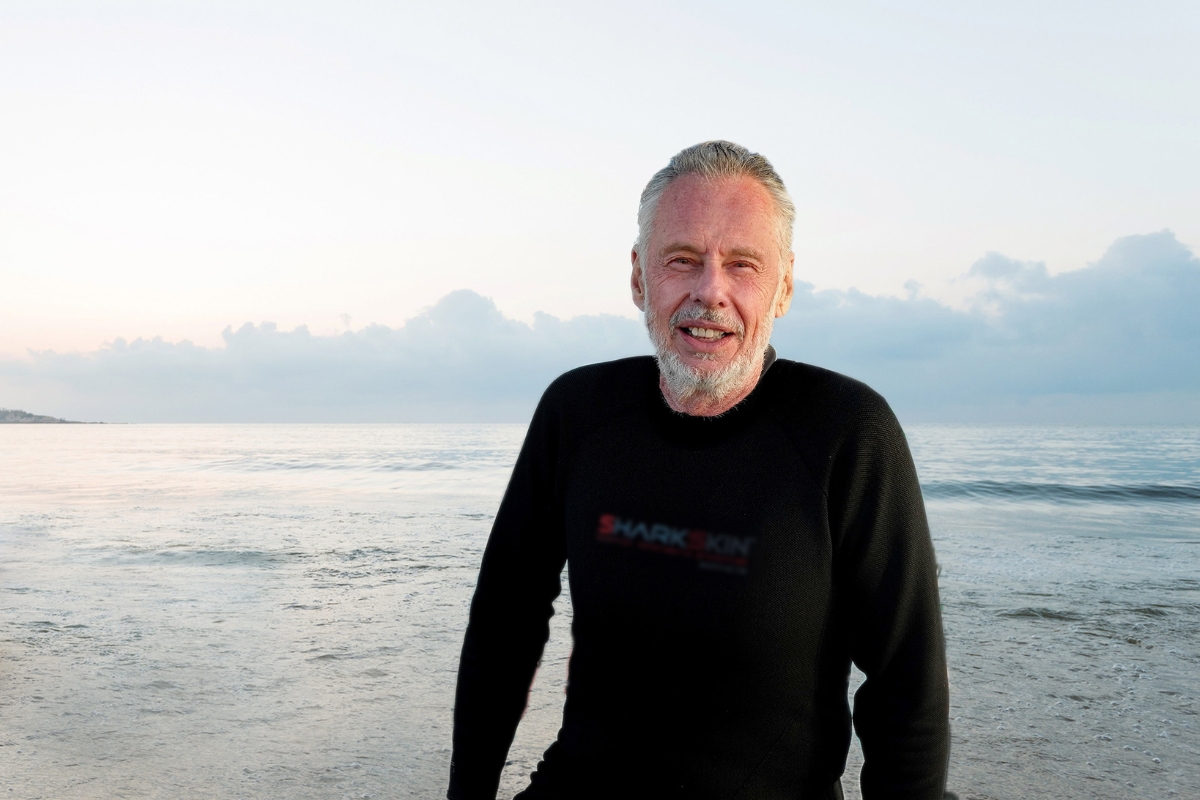
Kristin: We have a couple of principles for our philanthropy. One of them is giving back to communities that Sven’s company travels to [as they are] so hospitable to his guests. The growth of our foundation is directly contingent upon the success of his business, [which relies] upon interactions with travel communities. And a lot of times the people and efforts that we support come out of our own travels … probably over 75% of the projects that we're committed to we've directly interacted with in various ways, [such as] research missions.
A great example of this is the Bahamas National Trust. Some of their representatives came on [a] trip with us ... and now every year we give a grant to support a youth to go into their mentorship program and get introduced to the ocean in the Bahamas. Another example is The Cultural Sanctuaries Foundation … In 2023, we took them on a recon in the Marquesa Islands, [where] they now have a cultural centre. In the future, when Lindblad Expeditions guests pass through the area, [they can visit it]. There's always a lot of synergy like that.
Sven, can you summarize the evolution of Lindblad Expeditions and your role with the company?
Sven: Lindblad Expeditions started as a company called Special Expeditions in 1979 as a division and separate entity of my father's company, Lindblad Travel … We wanted to focus on three things: nature, culture, and history. And that really came out of personal experience. I was living in East Africa for seven years and I became really imbued with the importance of nature … I didn't know that much about business, but I knew a lot about nature and I felt if I could combine the two, there might be an opportunity to do something interesting in life.
My father was the pioneer of ecotourism. He was literally the first person to take people to most of the world that we take for granted now: the Antarctic, Galapagos, Amazon, Mongolia, Bhutan, China … people having [these kinds of] experiences develop more appreciation, respect – even reverence – for what they've seen. And they perhaps want to do more about protecting it. [So] we started with things I knew: safaris in Africa, programs in India. Then I started getting involved with boats, first in Baja California, then in Alaska and then globally. Now we have 10 ships that we own and another seven that we charter and we're entirely marine-based … And in 2004, we developed the beginnings of what became a deep partnership with National Geographic, which is now contractually extended to 2040 … I can't imagine having a better partner.
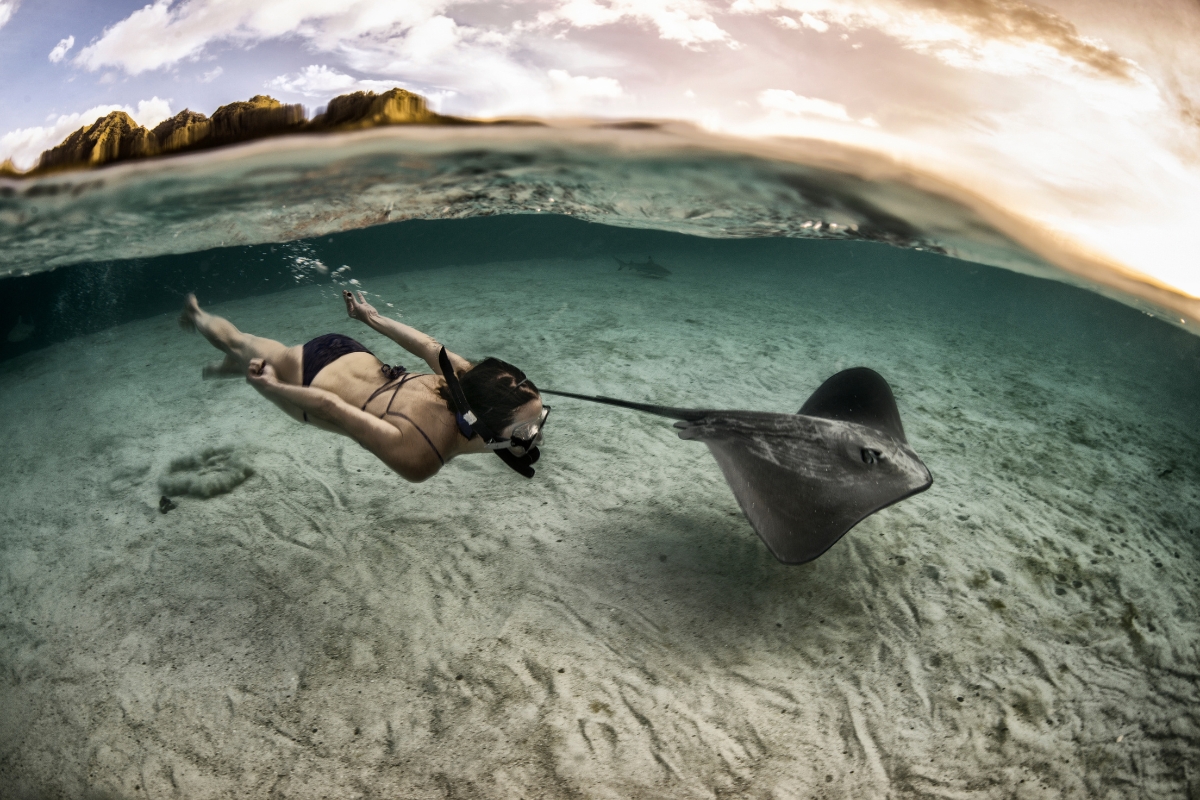
Speaking of National Geographic, what are the secrets to photographing wildlife?
Sven: The most important ingredient is having an understanding of your subject … If you want to photograph a jaguar, you better know how it moves, where it rests, what its range is, what it's eating at a particular time of year, etc. [to] put yourself in the position to even possibly get a photograph. And that's pretty much true with all animals. [Also,] having the right equipment for what you're trying to accomplish is important. But above all, you have to have a ton of patience.
Can you tell me about the Wanderlust Fund and how it enables you to give back?
Kristin: It's our giving vehicle … separate from the company, but often times we'll work alongside the company. [One] great example is [during] the pandemic … so many communities dependent on tourism … were left basically high and dry without any economic support. So we combined forces with Sven’s company’s fund, which is called the LEX-NG Fund – capitalized by travellers on Sven’s ships and also Lindblad’s board of directors – and all made investments into a fund that was used to give out microloans to people in the Galapagos … starting a new economy aside from tourism. It's an ongoing program … One of the organizations we support [via a microloan], Rare, is doing an amazing job through its Fish Forever program in creating basically community saving banks and an insurance model for coastal fishers around the world.
How do you define responsible tourism?
Sven: Responsible tourism is complicated because there's no simple answer. It used to be “leave only footprints,” [which] was adequate at a certain point in history. Nowadays it's certainly leave no footprints and otherwise minimize any effect that could be classified as or defined as negative, but at the same time, try and find creative ways to enhance or repair places.
Kristin: Responsible travel involves leading by giving back … exploring the planet [should not be] a big story of extraction … people going places and taking things … What I would love to see is that as people are traveling around the world, as they're moving into communities, they also look to see how they can give back. That’s [what] Sven’s company is really based on [and it’s] at the top of our philanthropic model.
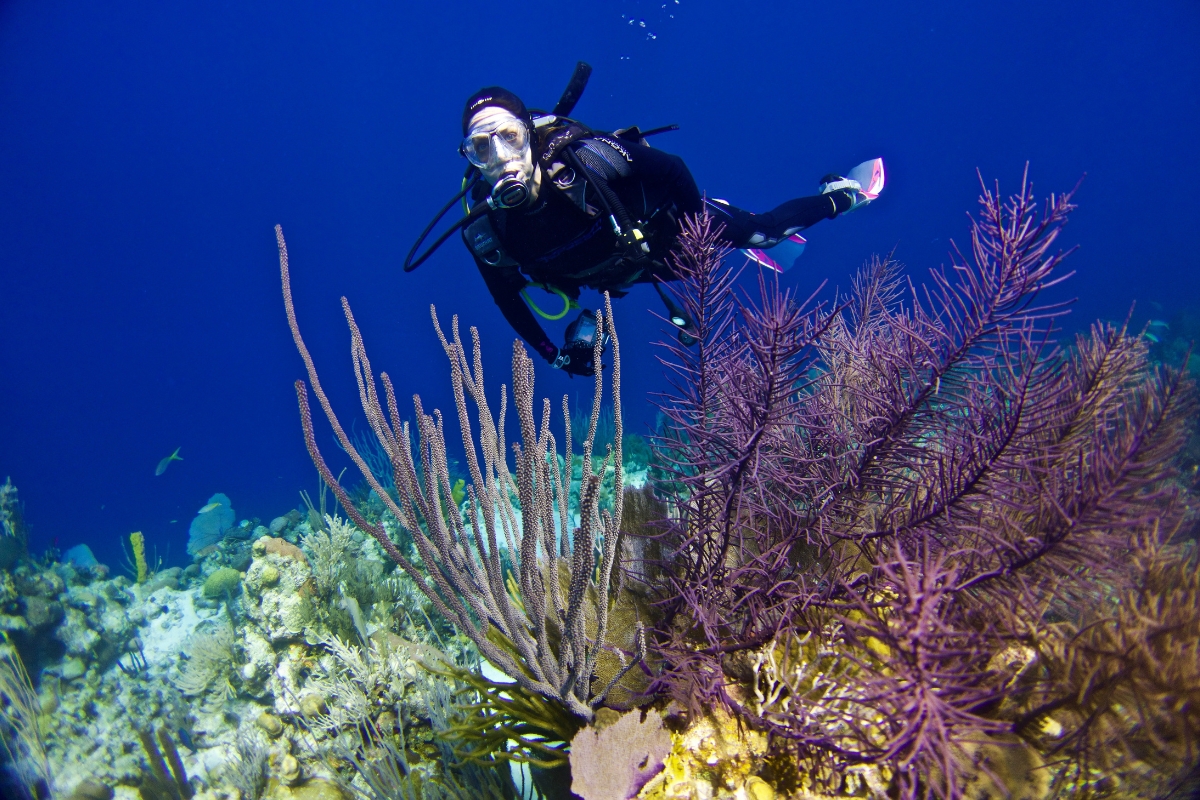
Do you believe that expedition travel is sustainable and will it increase as a result?
Sven: There are a lot of people interested in experiential travel [and] growing interest in nature and the environment for a whole variety of reasons, not the least of which is people are beginning to recognize that [the environment] over time will evolve to a worse and worse place. So there's an urgency in a sense and that means more and more companies are getting into it. Some of those companies will be good [and] do their job well [with] well trained personnel. Some of them will have the right ships for wherever it is they're going and some of them won't. It's a concern when you have market-driven expansion that doesn't necessarily correlate with the level of respect, experience and ability along with it … which is inevitable when something grows too fast.
What are the advantages of ship exploration versus other modes of transportation?
Sven: We love to dive, snorkel and be in places that have not been destroyed by overdevelopment in any way, shape or form. With a ship, you … can go to really remote places … where there are no docks, no roads, no anything if you want or you can go to small communities and places that are very difficult to reach. So to me, small ship travel – just like yachts – equals freedom of movement, which translates into some unbelievably magnificent experiences that you just couldn't get otherwise. It's really a factor of access.
How do you balance environmental protection with tourism as a company?
Sven: Everything has a scale. [But] if the positive outweighs the negative, that's a positive circumstance, right? I remember when I was living in East Africa, there were people who said, “Wouldn't it be great if no tourists went to the Serengeti and the animals could just live their lives?” And my answer to them was: “If no visitors went to the Serengeti, it would be a cornfield.” That's just reality because there's no way that those animals would be protected if there weren't tourists interested in seeing them and bringing in revenue as a consequence. You think about whales, [which] are protected in most of the world. Why is that? Because of science in part, but largely because of public pressure to protect whales. Because people love whales.
So tourism actually plays a very important role in creating the level of appreciation, which then encourages governments and regulators to protect places. So that's the plus though obviously, it can go overboard. For example, in Africa … I would occasionally see a family of cheetahs surrounded by 20 or so vehicles. They only hunt during the day so tourists were inhibiting their ability to catch food. And that's a negative, that's a problem. But that can all be dealt with through regulation and education and such. The reality is tourism is an essential ingredient to conservation … The question is: How do we get better at managing tourism so the positives continue to go up and the negatives continue to go down?
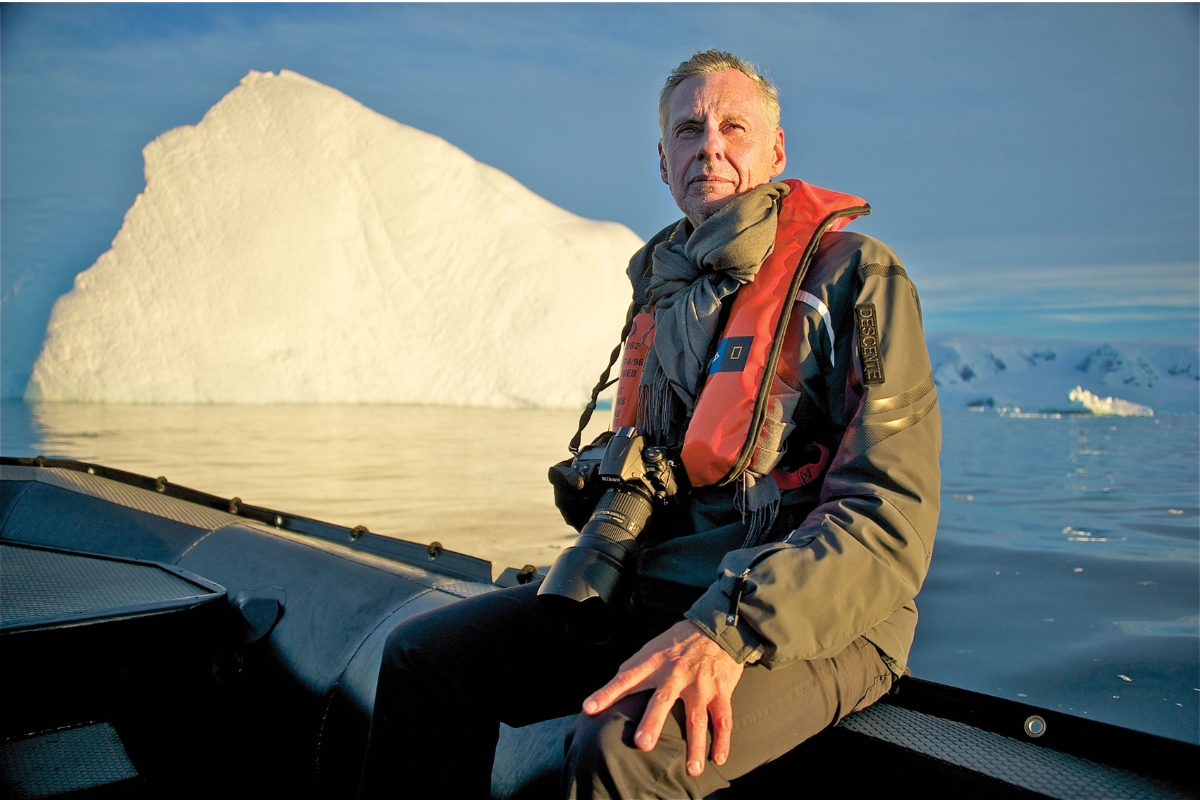
Can you speak to some of your most touching interactions with wildlife?
Sven: In terms of the marine world, a lot of those have been with whales. For example, the first time that I had an encounter with a gray whale, a mother brought her calf … up next to our zodiac. And it played with us for an hour. I just couldn't believe that an animal, which earlier in this last century had been hunted to near extinction, was all of a sudden bringing its baby to have that kind of contact with us as humans.
Kristin: Humpback whales are [also] interactive … Once I was in the water with some scientists and there was a female that was obviously being chased and harassed by two males. She was coming up very close to the boat and basically using it as a shield and then us once we got in the water as these two males were vying for her attention <laugh> …
What are your favourite travel destinations and why?
Sven: I never answer that question because it's kind of like “who's your favourite child?” [But] the areas I've spent the most time in, which I suppose is a great indication of love … are French Polynesia, Baja California, Galapagos and Antarctica. An interesting thing about people who travel, they very often use the word “done.” “I've done Italy or I've done Spain or I've done whatever.” It's an odd word because <laugh> … you can't appreciate everything in a short period of time about a place. The first time … you're trying to get as much as you can. And then the second and third and fourth time, your perspective changes.
Are there a few places in the world that you have not yet explored, but would like to?
Sven: The South Pacific to me is this vast wonderland of fascination. I can spend years, years, years exploring stuff [there] … French Polynesia, the Cook Islands, New Caledonia, Samoa, the Solomon Islands, Papua New Guinea … I've never been to the Marshall Islands [or] to Palau. I really want desperately to go to Palau, which is a place where we were supposed to get married underwater before the pandemic hit. Also, there are places in Southeast Asia that I have not spent any time in like Laos, Cambodia, Vietnam and Thailand.
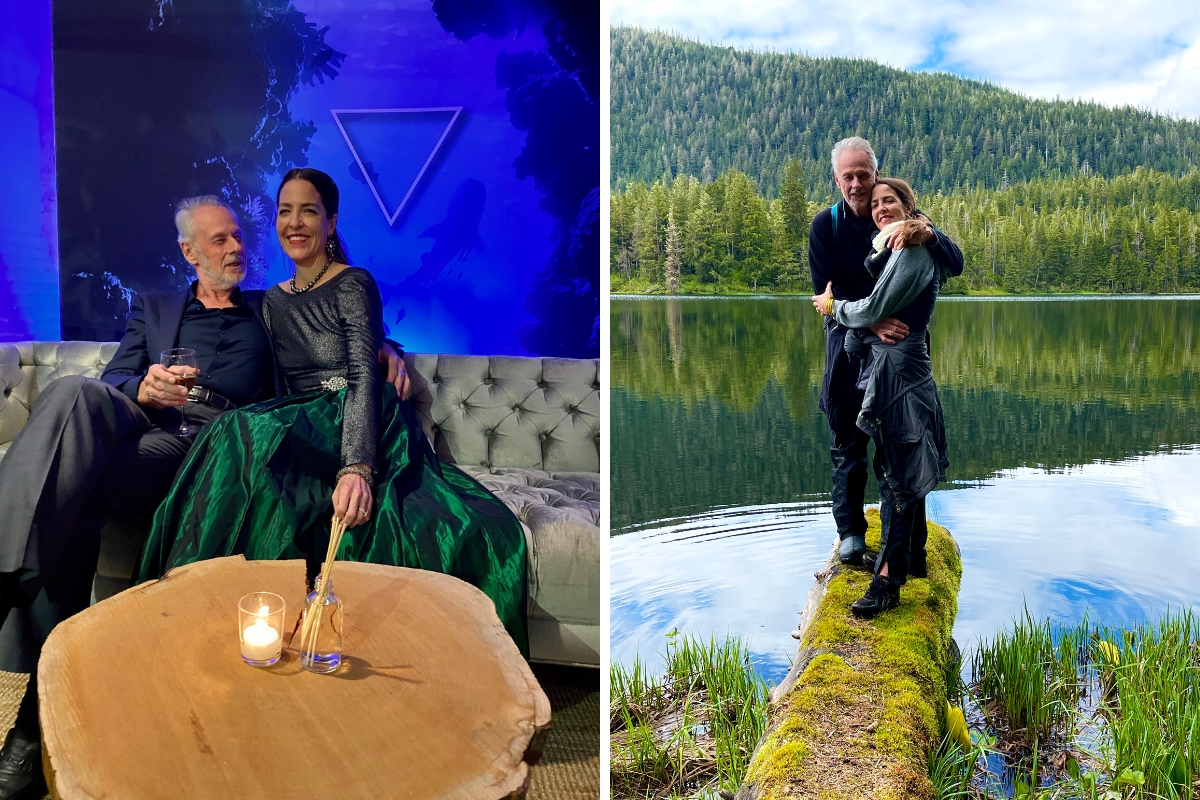
Why do you think everyone should travel to other countries?
Sven: It's the highest form of education. The more we understand other people, cultures and physical spaces, the better off we are in terms of how we navigate our own lives and how we think about the world. And it’s connective tissue. If you had a choice between going to university or travelling. I'd say travelling is way more important.
Kristin: Traveling helps you understand the diversity of the world. It also helps you understand yourself because [you] see yourself in the mirror of the rest of the planet. The more that you explore and get to know diversity, the more you can then come to understand what makes you unique.
